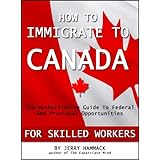Seattle is a tough city to get around in. Water is everywhere and you mainly have to drive around it to get where you want to. There are always a lot of cars on the road. Commutes can be a nightmare, The current drive times during rush hours from Everett to Seattle (28.3 miles) can average over 2-hours. You would think the city would embrace mass transit.
Nope.
Seattleites don't want to lose their cars and they don't want to pay for mass transit either. When they don't vote to fund these initiatives, the powers that be take things away. This week, they eliminated 28 bus routes. It's one thing if the routes were unused, but METRO, in what can only be seen as a vengeance ploy, eliminated routes in Seattle's busy and densely populated Capitol Hill neighbourhood.
Meanwhile, I personally witnessed four idle articulated coaches in a holding pattern in SW Seattle; part of a "Rapid Ride" system METRO built on top of their core transit system. The build out included a fleet of specially branded coaches and new, premium bus stops. So METRO can't cover the routes they already have, but they can launch an entirely other service?
The citizens of Seattle see this mismanagement and refuse to vote tax dollars to support it, Who can blame them? The bus and train services they do get don't run all the time and the coverage is spotty - maybe that's why ridership isn't as high as it could be.
But it's madness that a city in perpetual gridlock doesn't deal with this priority effectively. They don't. They never did when I lived here, and it's more of a mess than ever.
Oh, and then today METRO decided some of the cuts to service they had announced wouldn't be necessary after all. You can trust them on that.
Nope.
Seattleites don't want to lose their cars and they don't want to pay for mass transit either. When they don't vote to fund these initiatives, the powers that be take things away. This week, they eliminated 28 bus routes. It's one thing if the routes were unused, but METRO, in what can only be seen as a vengeance ploy, eliminated routes in Seattle's busy and densely populated Capitol Hill neighbourhood.
Meanwhile, I personally witnessed four idle articulated coaches in a holding pattern in SW Seattle; part of a "Rapid Ride" system METRO built on top of their core transit system. The build out included a fleet of specially branded coaches and new, premium bus stops. So METRO can't cover the routes they already have, but they can launch an entirely other service?
The citizens of Seattle see this mismanagement and refuse to vote tax dollars to support it, Who can blame them? The bus and train services they do get don't run all the time and the coverage is spotty - maybe that's why ridership isn't as high as it could be.
But it's madness that a city in perpetual gridlock doesn't deal with this priority effectively. They don't. They never did when I lived here, and it's more of a mess than ever.
Oh, and then today METRO decided some of the cuts to service they had announced wouldn't be necessary after all. You can trust them on that.





